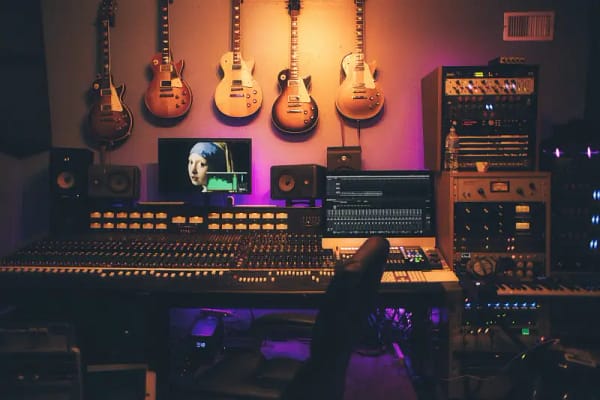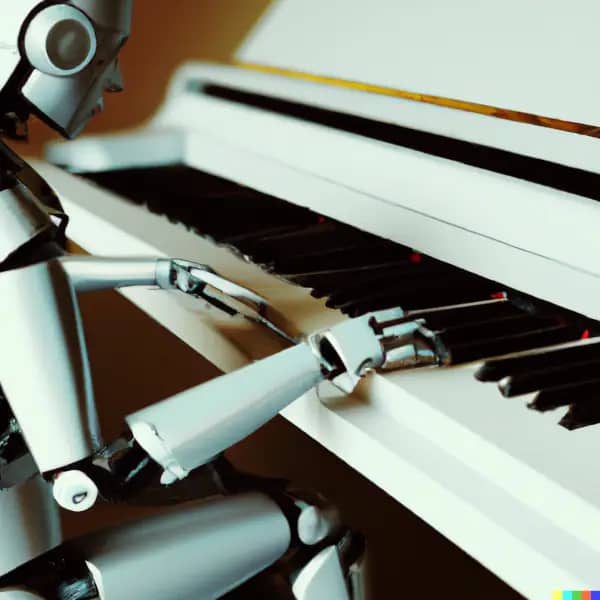The world of artificial intelligence (AI) has made waves with technological advancements in recent years. One advancement is the development of AI to generate music, which allows individuals to create a song in a matter of minutes. This article reviews the benefits and limitations of an AI music generator, ethical implications of using one, and the future of music using AI.
How AI Music Generators Will Enhance Music Development
A significant advantage of using an AI music generator is enhanced efficiency in music production. Traditional music production requires music production equipment and a lot of time to produce a track. However, producers can create each component of music more quickly and efficiently by eliminating a lot of guesswork and time-consuming experimentation. This efficiency reduces the cost of music production, making it more accessible to aspiring artists and producers.

AI music generators can also serve as a source of inspiration and creativity for artists. It can help spark ideas and compositions that artists can build upon as a shortcut to creativity. Additionally, they can also provide a fresh perspective on existing music and inspire artists to create unique and innovative tracks.
Limitations of Using AI Music Generators
Despite the benefits of using AI music generators, there are some limitations based on the fact that they rely on data and algorithms for their output. The music generated will be based on data on which the AI is trained.
One limitation is the lack of emotional depth and authenticity in the music generated. Music is an art form that is created through human feelings and emotions, which are conveyed through an artist’s songs. An AI music generator lacks that quality as it relies on pre-existing data and algorithms to generate music that is random, which lacks true human emotion.
AI music generators are also limited by music that exists in a vacuum. Although it is impressive that an AI music generator has the ability to create music, the songs generated will lack innovation. The music produced will be based on the data from the era, genres, and styles of music it learns. For example, if an AI music generator only processed all genres of music created before the 1980s, it is unlikely that it would generate music that would contain sounds and beats similar to modern music genres such as trap or future bass, which were developed later.
Copyright Issues Involving AI Music Generators
While AI is in the early stages of creating music, there are ethical concerns about how it is creating music and copyrights to the music generated.

In order to train an AI music generator, a large amount of data of existing music is used. For example, Google trained its AI music generator, MusicLM, using a dataset equal to 280,000 hours of music, and the creator of ChatGPT developed its AI music generator, MuseNet, by training it on “hundreds of thousands of MIDI files”.
Use of existing music to train an AI music generator raises concerns about copyrights, which is an issue currently litigated in the art world. Lawsuits have been filed against companies that developed AI image generators, claiming the technology was trained using data from images without consent or compensation of the copyright holders. Depending on the outcome of those lawsuits and the copyright laws of each jurisdiction, there may be potential claims against AI music generators that were trained using copyrighted music without permission or compensation.
Furthermore, AI music generators may infringe on copyrights by incorporating aspects of existing music used to train it. There are two types of works related to music that may be copyrighted. One is the actual composition, which includes the melody, lyrics, and other unique musical aspects. The second type is the sound recording of the music.
The potential for unintentional copyright infringement is a concern when using an AI music generator trained on a vast dataset of copyrighted music. However, it’s important to note that copying certain aspects of a musical composition does not automatically result in copyright infringement.
In U.S. copyright laws, infringement is only considered to occur if the infringing party creates a “substantially similar” copy of an original element of the work. Although AI music generators may create music that contains similarities to existing compositions, there is no infringement if the degree of similarity is minor or if the copied element is not original, such as repeating the same note on each beat of a song. Additionally, if the element that is allegedly copied is deemed to be an “idea,” it cannot be copyrighted.
Overall, it is important to consider the ethical implications of using an AI music generator as the technology continues to evolve.
The Future of of AI Music Generators
AI music generators are still relatively new, but their potential impact on the music industry is significant. Based on the recent advancements of AI writers, we can expect to see more advancements in AI music generators, and rise in adoption of the technology for efficient and effective music production.
Integrating use of an AI music generator with human creativity will become more common as technology advances. This integration can lead to unique and distinctive musical compositions, even without significant knowledge and experience in music theory. As a result, music creation may become more accessible to a wider range of businesses, meaning advertising jingles may no longer be limited to large corporations with substantial budgets. Individuals learning how to make a song will also have the ability to create a musical piece much faster than before.

Additionally, as AI music generators continue to evolve, we may witness new and innovative uses for the technology by people. With an increase in individualism in the past few decades, it is possible individuals will use AI music generators to create a unique song to serve as part of their personal identity. It’s imaginable that songs will be generated based on an individual’s specific style and profile, serving as a form of self-expression similar to the way a person talks, dresses, or designs their living space.
Conclusion
AI music generators will not replace the creativity of humans. They can be as useful as AI writing tools, and have the potential to revolutionize the music industry. While the technology presents exciting opportunities for innovation and creativity, it also raises important ethical concerns that must be addressed to ensure its responsible and sustainable use. Despite these challenges, AI technology should be developed and used in a way that promotes positive outcomes for artists, producers, and society as a whole.




